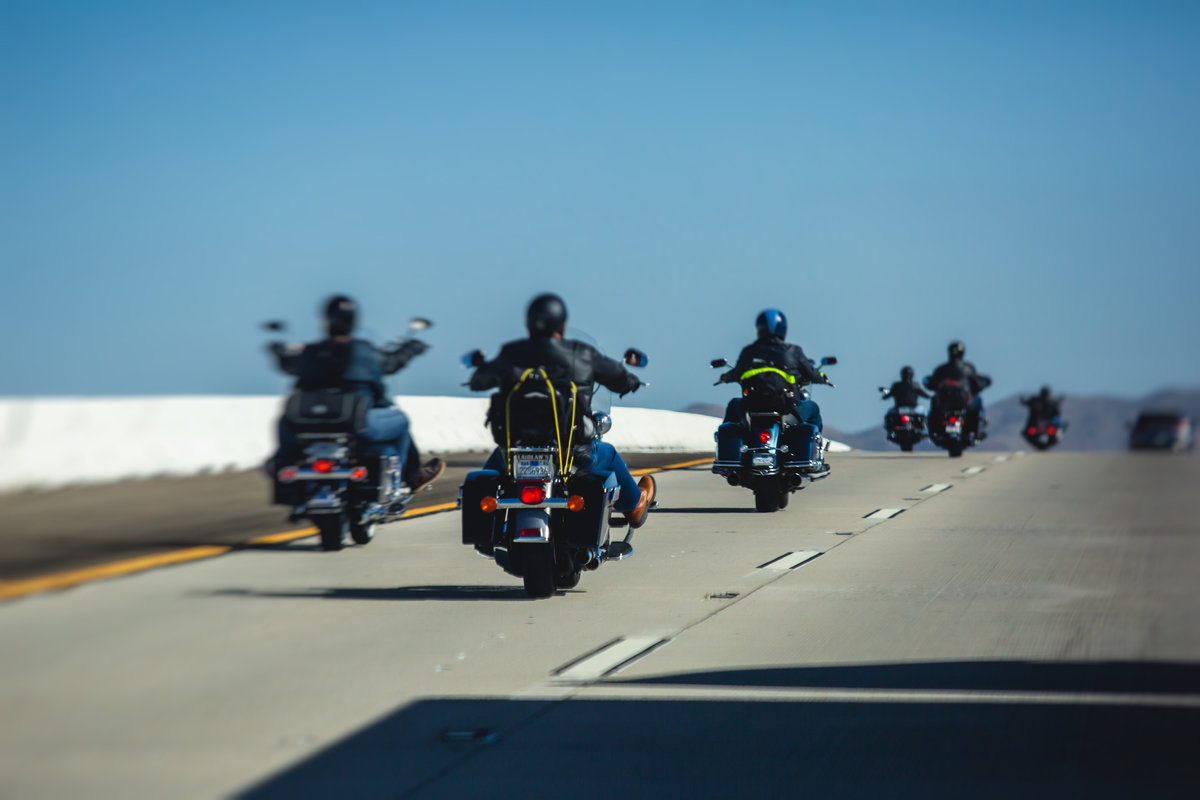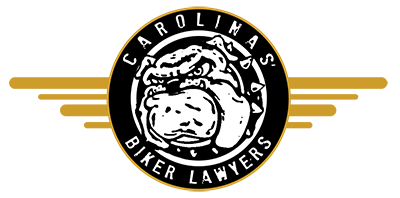Blog
I-77 Motorcycle Safety Guide

Interstate 77 presents unique challenges for motorcycle riders traveling through North Carolina’s diverse terrain. This major highway spans from Charlotte through mountainous regions toward Virginia, creating conditions where weather patterns shift rapidly and traffic density varies dramatically between urban and rural stretches. Understanding I-77’s specific hazards can mean the difference between a safe ride and a serious accident.
For motorcyclists traveling on I-77, knowledge of motorcycle accident laws and safety practices becomes essential before hitting the road. At Carolinas’ Biker Lawyers, we see firsthand how I-77 motorcycle accidents impact riders and their families throughout North Carolina. Our team has represented bikers for over 40 years, and we understand the challenges riders face on this busy interstate. When accidents happen, we provide the legal support motorcyclists need to protect their rights and secure fair compensation.
What You Should Understand About the Weather and Visibility Challenges on I-77
North Carolina’s I-77 corridor experiences sudden weather changes, particularly in the mountainous regions near Statesville and Mooresville. Morning fog can reduce visibility to dangerous levels within minutes, while afternoon thunderstorms create slick road surfaces and strong crosswinds. These conditions are especially hazardous for motorcycles.
Temperature variations along I-77 can catch riders off guard. Charlotte’s urban heat may require lightweight gear, but mountain elevations demand warmer protection. Smart riders check weather forecasts for their entire route and pack accordingly. Sudden temperature drops can affect tire pressure and handling characteristics, making preparation essential.
Wind patterns near I-77’s elevated sections create another safety concern. Large trucks generate powerful wind gusts that can push motorcycles toward guardrails or into adjacent lanes. Bridge crossings and mountain passes amplify these effects, requiring riders to maintain firm control and avoid riding in truck blind spots.
High-Traffic Areas and Merge Zones on I-77
The Charlotte metropolitan area represents I-77’s most challenging section for motorcycle safety. Multiple interstate intersections, frequent on-ramps, and heavy commuter traffic create numerous conflict points where accidents occur. Rush hour traffic moves at varying speeds, forcing motorcycles to navigate between vehicles and make sudden lane changes. Our Charlotte motorcycle accident attorneys handle numerous cases stemming from these high-traffic conditions.
Construction Zones
Construction zones along I-77 require extra caution from motorcycle riders. Reduced lanes, shifted traffic patterns, and uneven pavement surfaces create hazardous conditions. Orange barrels and temporary barriers reduce escape routes if drivers fail to see motorcycles in their mirrors. Riding through construction requires reduced speeds and increased following distances.
Heavy Weekend Traffic
Popular destinations along I-77 generate heavy weekend traffic, particularly during motorcycle riding season. Lake Norman attractions and mountain recreation areas draw large numbers of vehicles, many driven by unfamiliar tourists who may not expect to encounter motorcycles. These drivers often make unpredictable movements while searching for exits or attractions.
Essential Safety Practices for I-77 Riders
Successful I-77 motorcycle travel requires defensive riding techniques tailored to interstate conditions. Understanding proper motorcycle insurance coverage helps protect riders financially before accidents occur. The following practices can significantly reduce accident risks:
- Maintain visible positioning in traffic lanes, avoiding blind spots
- Use headlights and reflective gear to increase visibility
- Keep adequate following distances to allow reaction time
- Signal early and clearly when changing lanes or exiting
- Monitor weather conditions and adjust riding plans accordingly
These fundamental safety measures become even more critical during peak travel times and adverse weather conditions. Remember that car drivers may not actively look for motorcycles, making visibility your primary defense against accidents.
Legal Protection After I-77 Motorcycle Accidents
When accidents occur despite careful riding, having proper legal representation makes a crucial difference in outcomes. Insurance companies often attempt to minimize claims involving motorcycles, claiming rider error or arguing about the severity of injuries. Medical bills, lost wages, and motorcycle damage can create financial hardship while you focus on recovery.
North Carolina’s contributory negligence laws can complicate motorcycle accident cases, making experienced legal counsel essential. Understanding how these laws apply to your specific situation requires knowledge of motorcycle accident litigation and the unique challenges riders face in court.
Contact Karney | Clayton for Legal Support Today
Interstate 77 motorcycle accidents require legal representation that understands both the highway’s unique dangers and the challenges facing injured riders. Our firm has built relationships with accident reconstruction specialists, medical professionals, and motorcycle safety advocates who provide crucial support for your case. You can learn more about our experienced team and read what fellow bikers say in our client testimonials.
As fellow riders who share your passion for the open road, we know motorcycle accidents are personal battles affecting every aspect of your life. Our motorcycle accident attorneys combine decades of legal experience with a genuine understanding of biker culture, ensuring you receive both skilled representation and the respect you deserve during this difficult time. Call us at 704-318-4392 or contact us to discuss your case with attorneys who fight for riders’ rights.
